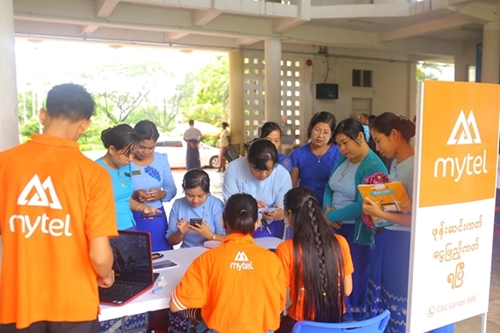From the telecommunications revolution...
In Cambodia, the network of Metfone - Viettel’s brand name in the country - now covers 97% of the population. This network provider has quickly become the leader in terms of market share in the country as well.
Meanwhile, the telecommunications infrastructure of Laos has increased by four times since Viettel started investing in the country.
In 2015, Unitel, the joint-venture between Viettel and Lao Asia Telecom, launched its 4G service in Laos and increased the rate of data-using customers from 29.6 percent to 49.2 percent.
Additionally, 60 percent of the population of Timor Leste now has access to telecommunications services, doubling the rate of 30 percent before Viettel’s presence in the country.
Since Mytel, Viettel’s brand in Myanmar, joined the telecom market, the network operator has helped popularize Internet services in the country with an increase from 31% (Mytel started providing service in June 2018) to 55% (September 2019).
    |
 |
|
Mytel - Viettel brand in Myanmar. |
Currently, Viettel offers broadband Internet services based on fiber optic cable and 4G networks in five ASEAN member states. This is an important foundation for these countries to carry out a series of Industry 4.0 projects related to e-government, e-payment, education, agriculture, transportation, and security, thus gradually creating digital societies and building digital economies.
At present, the giant telecom of Vietnam has successfully piloted and offered 5G and IoT services in all of its domestic and international markets. These countries, with their own capacities, have gradually deployed digital eco-solutions, such as e-payment, e-wallet, e-government, smart city, and online education.
Together with changing the telecommunications infrastructure, Viettel has generated jobs and ensured stable income for nearly 6,500 local workers in its overseas markets. It has also trained personnel, transferred technologies, and improved labor quality in its four overseas markets.
...to creating a digital economy
Viettel’s contributions to improving telecommunications infrastructure has opened up the potential for the dynamic development of ASEAN member states.
According to a study by Bain & Company, a U.S. management consulting firm, the proportion of digital economy in ASEAN’s GDP is currently only about 7% (2018). It is rather low when compared to 16% of China, 35% of the U.S., and 27% of the five European countries of France, Germany, Italy, Spain, and the U.K.
A report by Kearney, a U.S. management consulting firm, confirmed that despite limitations in 2019, ASEAN has the potential to enter the Top 5 digital economies in the world by 2025. Besides, the implementation of a radical digital economy development agenda could add USD 10 trillion to ASEAN’s GDP in the next ten years.
This shows that the potential for developing digital economies in ASEAN is huge.
Viettel’s achievements in the past have confirmed that Vietnam has gradually and confidently integrated into the world, and the country has actively and proactively enhanced its role as a reliable partner and a responsible member of ASEAN in particular and of international community in general.
With Viettel’s success in piloting and providing 5G services in their countries, Vietnam, Laos, Cambodia are now among the first countries in the world to implement 5G services.
The Vietnamese telecom giant has also implemented numerous technological solutions to boost digital economies and create digital societies in its investment markets. So far, it has reaped good results in carrying out e-government, e-payment, and digital transformation for numerous enterprises.
Translated by Mai Huong